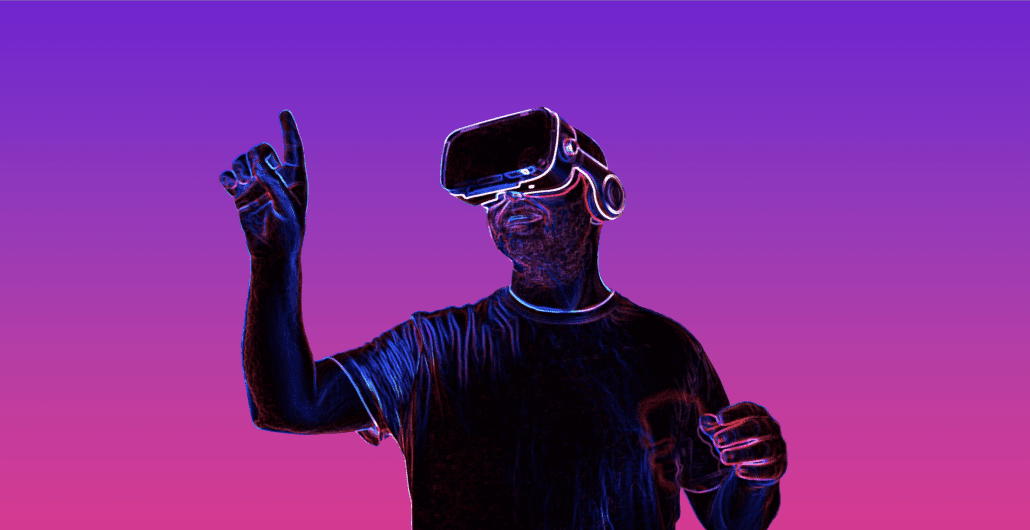
Metaverse meetings and events — the concept sounds strange, yet also strangely appealing. Should you start planning to hold meetings and events in the latest iteration of virtual events in the metaverse?
The technology to support virtual realities has been around since the 1960s, albeit it more rudimentary forms than today’s advancements make possible. Even the name “metaverse” isn’t new: It was coined by Snow Crash author Neal Stephenson back in 1992. But once Facebook rebranded as “Meta” last year, the concept has gained traction. We’re not talking about virtual meetings as everyone has come to know them over the course of the pandemic — such as those glitchy, often exhausting Zoom meetings, and even the more feature-heavy platforms that grew like mushrooms in rainy season and were picked by event organizers from the Consumer Electronic Association on down to local town government events.
The metaverse now being touted as the next big thing for meetings and events appears to be more of a supercharged, immersive version of Second Life, where users create an avatar and wander a digital landscape of platforms that include, yes, meetings and events of all kinds. Long popular with gamers — in April 2020, 12 million fans gathered in Epic Games’ Fortnite metaverse platform to watch an avatar of rapper Travis Scott perform — it’s now moving into the mainstream to the point where Microsoft Co-founder Bill Gates recently said he believes most virtual meetings will, within the next couple of years, “move from 2D camera image grids … to the metaverse, a 3D space with digital avatars.” Of course, like Facebook, Microsoft has virtual skin in the metaverse game — most major tech companies are developing their own virtual platforms for gaming, and potentially much more.

So what exactly is this brave new online world, and will you be planning meetings and events there in the near future? Prevue asked international speaker, consultant, writer and expert on all things event technology Corbin Ball, CSP, CMP, DES, MS, to share his thoughts.
Prevue: So, what exactly is the metaverse?
Corbin Ball: The metaverse is a shared, immersive digital world (usually in 3D) that focuses on collaboration and social connection. There will likely be many of these worlds.
Prevue: Why should meeting planners care about the metaverse?
Corbin Ball: With hundreds of billions of dollars in funding by the major tech players (Facebook/Meta, Microsoft, Apple, etc.), there will be many developments and advancement in what is now a nascent technology. Events are about bringing people together. This technology promises to do this in creative, engaging ways. Already, there are event tech providers, such as EXVO, that are providing immersive worlds for events (although in 2D) that give an idea of how this will work.
Prevue: Is the technology there yet to really make meetings and events in an immersive 3D virtual world practical?
Corbin Ball: The major barrier for entering a 3D virtual world is the need for VR headsets. There is a problem in terms of cost and wearing comfort that may reduce adoption rates (some users experience motion sickness using them while other complain of wearing fatigue for extended periods). Also, there are no standards yet with many competitors.
Prevue: Second Life was kind of interesting when it made a bit of a splash a few years ago, but it never seemed to really catch on. Have times changed?
Corbin Ball: I was one of the first people, if not the first, to present using Second Life for the events industry. I loved the immersive feel which felt much better than the webinar technologies at that time. However, I felt from the start that SL would not be widely adopted due to the high barrier of entry to download, create the avatar, and learn how to navigate in the system.
Prevue: What do you see as the main benefits of meeting in the metaverse at this point in time?
Corbin Ball: It has the possibility of taking virtual meetings to a whole new level of engagement with the only limit on creative possibilities are the human imagination.
Prevue: What do you see as the biggest challenges to widespread adoption for events?
Corbin Ball: There are several:
- This is nascent technology that is largely unbuilt without standards for privacy, security and cross-platform compatibility.
- It will require widespread use of VR headsets which is not a certain bet (remember 3D TVs?).
- The metaverse will require the use of avatars as a video feed of the face will not be possible as faces will be covered with VR headsets. Although the creation of realistic-looking avatars will be semi-automated, I doubt that they will be able to replicate subtle facial expressions, gestures and body-language of face-to-face interactions either in-person or virtually. For business interactions, some will say they prefer a video conference rather than interacting with a “cartoon.”
- Although the metaverse holds the promise of many creative ways of interaction, it will not match the power of in-person events in terms of relationship-building and establishing credibility. Although it will likely be cool-looking and fun, it is another way to separate us from real nature, real people and the real world.
You Might Also Be Interested In
Meet Virtually: Turnkey Group Experiences
How Omicron is Affecting Early 2022 Events
PCMA Convening Leaders 2022 Goes Hybrid in Vegas











